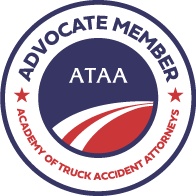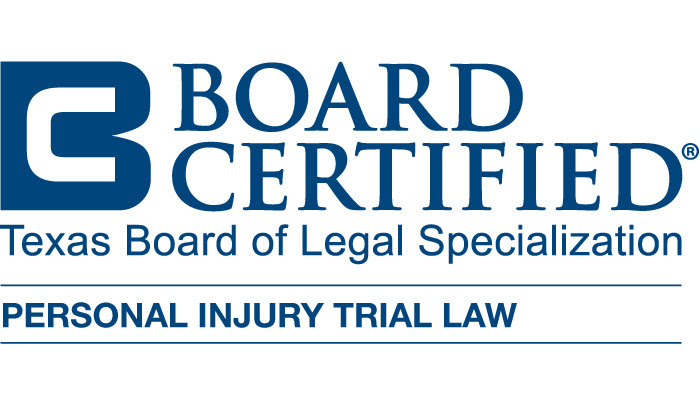Plant explosions are devastating events that can cause significant loss of life, severe injuries, and extensive property damage. In Texas, a state with a high concentration of industrial plants, these incidents are unfortunately not uncommon. When such a catastrophe occurs, determining liability is a complex process involving various potential parties. Understanding who can be held responsible is crucial for victims seeking justice and compensation.


The Role of Plant Owners and Operators
The primary responsibility for ensuring safety in an industrial plant lies with the plant owners and operators. They are tasked with maintaining the facility, ensuring that all equipment is in good working order, and implementing safety protocols. When an explosion occurs, one of the first questions is whether the plant owners and operators took all necessary precautions to prevent such an event. This includes regular inspections, proper maintenance, and adherence to safety regulations. If it is found that they failed in these duties, they can be held liable for the resulting damages.
Owners and operators must also ensure that all employees are adequately trained in safety procedures and that these procedures are rigorously followed. In many cases, explosions are the result of human error, which can be traced back to inadequate training or failure to follow established safety protocols. If an investigation reveals that the plant owners and operators neglected their duty to provide proper training or enforce safety measures, they could be held accountable for the explosion.
Equipment Manufacturers and Suppliers
Industrial plants rely on a wide range of equipment and machinery to operate. If an explosion is caused by a malfunctioning piece of equipment, the manufacturer or supplier of that equipment might be held liable. Manufacturers have a responsibility to ensure that their products are safe for use and free from defects. If it can be demonstrated that the equipment was defective and that defect led to the explosion, the manufacturer may be held responsible for the damages.
Similarly, suppliers who provide materials used in the plant, such as chemicals or other hazardous substances, could be held liable if those materials are found to be the cause of the explosion. For instance, if a supplier provided a chemical that was not properly labeled or came with inadequate safety instructions, and this led to an improper handling that caused the explosion, the supplier could be found liable. The chain of liability can extend beyond the immediate location of the incident, encompassing those who contribute to the conditions that make such a disaster possible.
My focus is to give a voice to families who have suffered a wrongful death or a serious injury to a family member caused by an 18-Wheeler, commercial truck, or a drunk driver. Contact us today, we can help you.Helping Injury Victims for Over 25 Years
Contractors and Subcontractors
Many industrial plants use the services of contractors and subcontractors for various aspects of their operations, such as maintenance, construction, and tasks. These external parties can also be held liable if their actions or negligence contributed to the explosion. For instance, if a contractor was responsible for maintaining a piece of equipment and failed to do so correctly, leading to a malfunction and subsequent explosion, they could be held accountable.
Subcontractors may be brought in for highly specific tasks that require a high level of precision and care. If these subcontractors fail to perform their duties to the required standard and their negligence leads to an explosion, they can be held liable. The complexity of plant operations means that multiple contractors and subcontractors may be involved, each with their own areas of responsibility. This can make determining liability a challenging process, requiring detailed investigations and expert testimony.
Government and Regulatory Bodies
Government and regulatory bodies are responsible for establishing and enforcing safety standards in industrial plants. If an explosion occurs, these bodies may also come under scrutiny. While it is less common for government entities to be held directly liable, they can play a role in the overall determination of responsibility. For example, if it is found that a regulatory body failed to enforce safety regulations adequately or overlooked critical safety violations during inspections, this could influence the outcome of liability assessments.
The lack of stringent regulations or enforcement can create an environment where safety is not prioritized, indirectly contributing to the risk of explosions. Victims and their legal representatives may argue that regulatory failures played a role in the incident, potentially leading to broader discussions about policy changes and stricter enforcement of safety standards.
Employee Liability
While it is less common for individual employees to be held liable in the event of a plant explosion, there are circumstances where this might occur. If an employee acted with gross negligence or willful misconduct that directly led to the explosion, they could be held responsible. However, more often than not, the focus remains on the systemic issues and the responsibilities of employers, manufacturers, and other entities.
Holding an individual employee liable typically requires clear evidence of intentional wrongdoing or extreme carelessness. Rather, the legal principle of vicarious liability often comes into play — where employers are held responsible for the actions of their employees during the course of their employment.
Shared Liability
Plant explosions are complex events with multiple contributing factors. As such, it is not uncommon for liability to be shared among several parties. For example, an explosion might be caused by a combination of defective equipment, inadequate maintenance, and failure to follow safety protocols. In such cases, plant owners, equipment manufacturers, contractors, and even regulatory bodies might all share some degree of liability.
Determining the extent of each party’s responsibility requires thorough investigations and often involves litigation. Legal proceedings may uncover evidence that points to multiple failures, leading to a distribution of liability among the various parties involved. This shared liability can complicate the process of seeking compensation, as victims must navigate claims against multiple defendants.
Related Videos
Choosing a Personal Injury Attorney
Types of Compensation in a Truck Accident Claim
The Importance of Legal Representation
For victims of plant explosions, seeking justice and compensation is a daunting task. The complexity of these cases, coupled with the powerful interests involved, makes it essential to have experienced legal representation. An attorney with a deep understanding of industrial accidents and liability can help navigate the intricate legal landscape, ensuring that all responsible parties are held accountable.
Legal representation is crucial in gathering evidence, coordinating expert testimonies, and negotiating with multiple defendants. An attorney can also help victims understand their rights and options, providing guidance and support throughout the legal process. In many cases, the path to compensation involves extensive litigation, making it vital to have a dedicated legal team on your side.
Fighting for You
If you or a loved one has been affected by a plant explosion in Texas, understanding who can be held liable is a critical step towards securing justice and compensation. The process involves identifying responsible parties, from plant owners and operators to equipment manufacturers and contractors. Shared liability is common, reflecting the complex nature of these incidents.
Navigating the legal aftermath of a plant explosion requires legal representation. The team at Willumsen Law Firm, P.C. is committed to helping victims of industrial accidents. Our experienced attorneys will work tirelessly to investigate your case, identify all liable parties, and pursue the compensation you deserve. Contact Willumsen Law Firm, P.C. today for a consultation, and let us help you on the path to recovery and justice.



